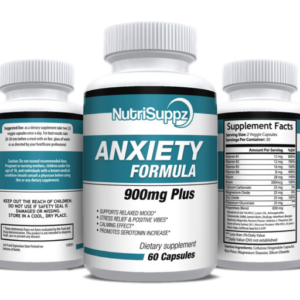03 Sep Managing Chronic Pelvic Pain: Insights and Strategies
Managing Chronic Pelvic Pain: Insights and Strategies
At Nutrisuppz, we’re committed to providing comprehensive insights into various health conditions. Today, we focus on Chronic Pelvic Pain Syndrome (CPPS), a condition that affects many individuals and can significantly impact quality of life. If you’re experiencing persistent pelvic pain and seeking to understand more about CPPS, this blog post will offer valuable information on its causes, symptoms, and management strategies.
What is Chronic Pelvic Pain Syndrome?
Chronic Pelvic Pain Syndrome (CPPS) is a condition characterized by ongoing pelvic pain lasting for six months or more, without an obvious underlying medical cause. It can affect both men and women and is often associated with discomfort in the lower abdomen or pelvis. CPPS can be debilitating and may interfere with daily activities and overall quality of life.
Causes of Chronic Pelvic Pain Syndrome
The exact cause of CPPS can be difficult to pinpoint, as it often results from a combination of factors. Some potential contributors include:
Musculoskeletal Issues: Muscle tension or dysfunction in the pelvic floor can lead to chronic pain. Conditions like pelvic floor dysfunction or myofascial pain syndrome may contribute to CPPS.
Inflammation: Chronic inflammation of the pelvic organs, such as in cases of interstitial cystitis (IC) or prostatitis, can cause persistent pain.
Nerve Sensitivity: Increased sensitivity or irritation of the nerves in the pelvic region can contribute to chronic pain.
Psychological Factors: Stress, anxiety, and depression can exacerbate the perception of pain and contribute to the development of CPPS.
Hormonal Changes: Hormonal fluctuations, particularly in women, can influence the onset and severity of pelvic pain.
Symptoms of Chronic Pelvic Pain Syndrome
Symptoms of CPPS can vary widely but typically include:
- Persistent or recurrent pain in the lower abdomen or pelvis.
- Discomfort or pain during or after sexual activity.
- Pain during urination or bowel movements.
- Feelings of pressure or heaviness in the pelvic area.
- Chronic pain that may be accompanied by fatigue or mood changes.
These symptoms can be challenging to manage and may impact daily functioning and emotional well-being.
Managing Chronic Pelvic Pain Syndrome
Effectively managing CPPS involves a multifaceted approach that addresses both physical and psychological aspects of the condition. Here are some strategies to consider:
Medical Evaluation: Consult a healthcare provider for a thorough evaluation to rule out underlying conditions and identify appropriate treatments. This may include imaging tests, laboratory tests, and physical examinations.
Physical Therapy: Pelvic floor physical therapy can help alleviate muscle tension and improve pelvic function. Techniques may include stretching exercises, manual therapy, and biofeedback.
Medication: Depending on the underlying cause of CPPS, medications may be prescribed to manage pain, reduce inflammation, or address specific symptoms. This could include pain relievers, muscle relaxants, or antidepressants.
Stress Management: Incorporating relaxation techniques such as mindfulness, meditation, and deep breathing exercises can help manage stress and reduce the perception of pain. Psychological therapy may also be beneficial in addressing any contributing mental health factors.
Lifestyle Adjustments: Maintaining a healthy lifestyle with regular exercise, a balanced diet, and adequate hydration can support overall well-being and help manage CPPS symptoms. Avoiding activities that exacerbate pain and finding effective ways to manage stress are also important.
Support Groups: Connecting with others who have CPPS through support groups or online communities can provide emotional support and practical advice for managing the condition.
Conclusion
Chronic Pelvic Pain Syndrome is a complex condition that can significantly impact quality of life. Understanding the potential causes and symptoms of CPPS, along with exploring effective management strategies, can help you take proactive steps toward improving your health and well-being.
At Nutrisuppz, we are dedicated to supporting your journey to better health. If you’re struggling with chronic pelvic pain, consider reaching out to a healthcare professional for personalized advice and treatment options.




No Comments